Robert Earnshaw: 'I dreamt of scoring for Wales in council estate'
- Published
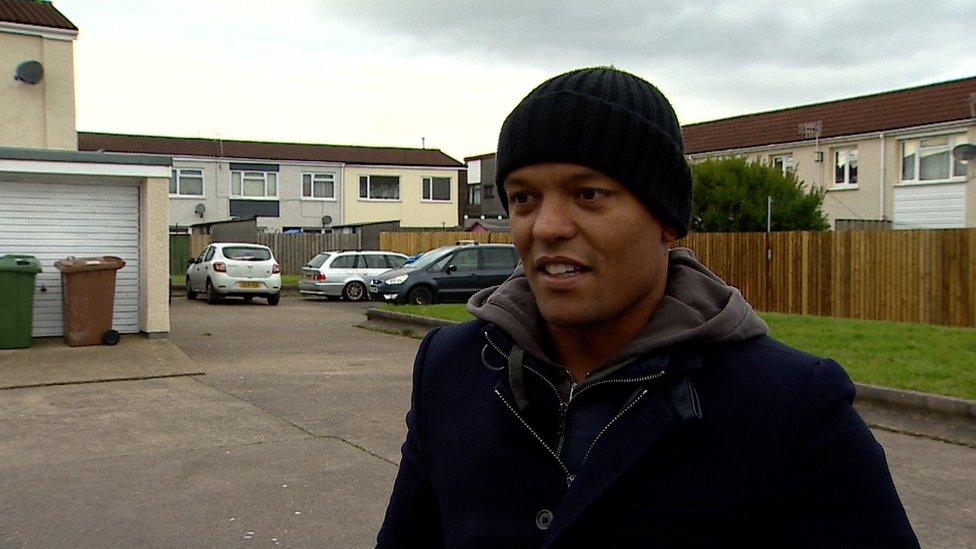
Former Cardiff City striker Robert Earnshaw says he watched footballers on TV and dreamt of playing against them while out on the streets in Caerphilly
"This is where everything began for me," says Robert Earnshaw as he stands on the street where he played football as a child.
The former Wales striker lived in Lansbury Park council estate in Caerphilly as a teenager.
A report in 2017 pointed to low aspirations on the estate, part of which has been classed the most deprived in Wales.
But Earnshaw says Lansbury gave him the drive to go on to play for his country.
"We would be playing football until it was pitch black. I was thinking I wanted to get out of here, I wanted to achieve something," he said.
"Everything starts from when you are a kid and you have a dream."

Earnshaw scored 16 times in 58 appearances for Wales and has fond memories of playing on the estate
Known out on the estate as Earnie, the former Cardiff City player scored hat-tricks in the Premier League, FA Cup, Championship, League One, League Two, League Cup and in an international match.
Born in Zambia, he moved to Caerphilly as a child and to the estate as a teenager, living in a flat with his three sisters and mother.
"I was here, with not a lot of money. My mum was working two jobs just to live here," he said. "There's good people here."
In 2014, a year before he announced his retirement from international football, the street he grew up on was labelled as being the most deprived part of Wales in an official index - where it has remained ever since.
Earnshaw, who has recently returned from coaching in America, says life on the estate was tough, with drugs, gangs and fighting.
"You are exposed to it. I looked at it and chose a different way," he said, adding there were a lot of success stories from the estate.
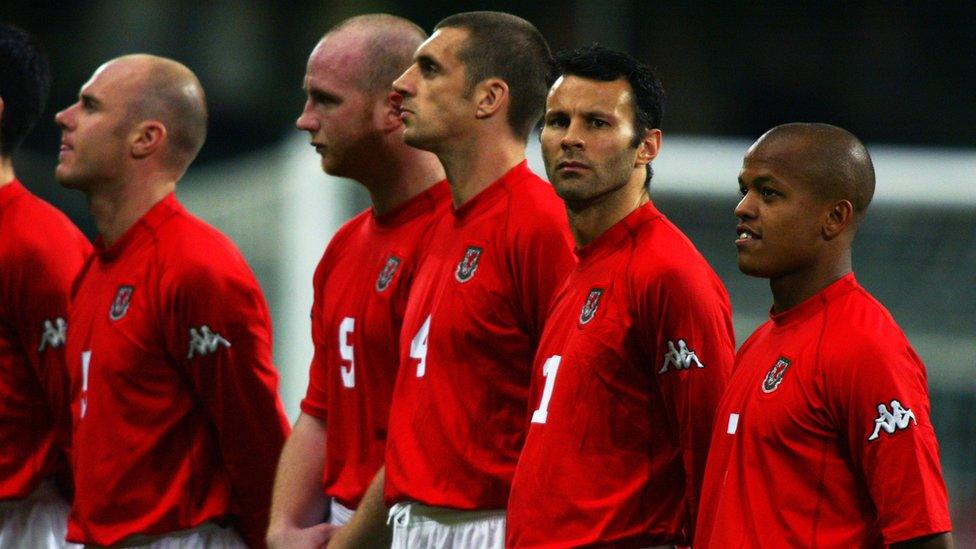
Earnshaw said he never felt deprived as a child living on the estate and people worked hard and just "got on with it"
But he has fond memories of playing in the streets and says he made good, lifelong friends here. Some still live here while others have moved away.
"I remember me kicking the ball against all the garage doors and all the fences, and smashed a few windows. I did apologise," he said.
"We used to put jumpers down as goals, and I was imagining myself playing for Wales, and because of that, I actually got to play for Wales," he said.
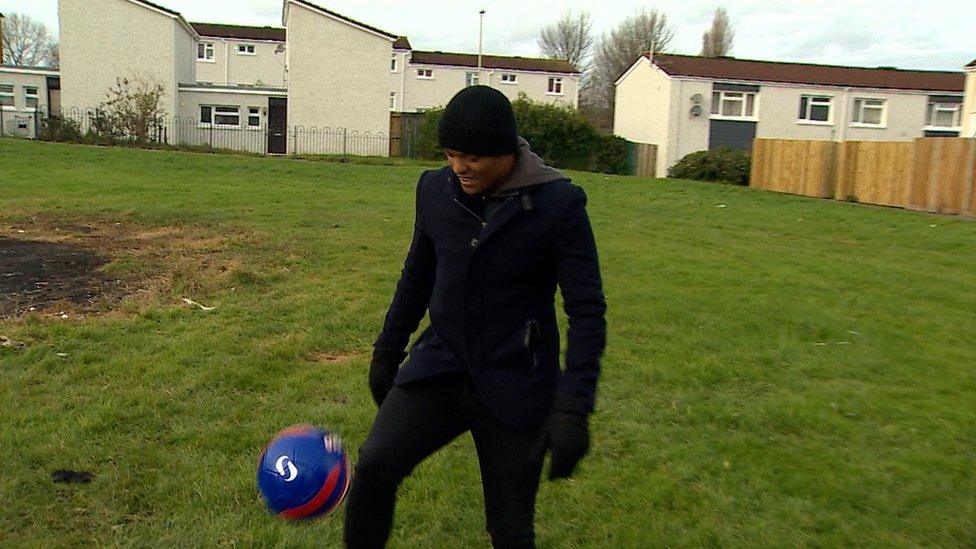
Earnshaw playing on the patch of grass outside his childhood home in Snowden Court
His message to other boys and girls who are playing on the estate is simple.
"You can do anything," he said.
"Just because you are in a situation or a neighbourhood that may be rough, maybe tough as well, it doesn't mean that's where you've got to be. You can achieve whatever you want to."

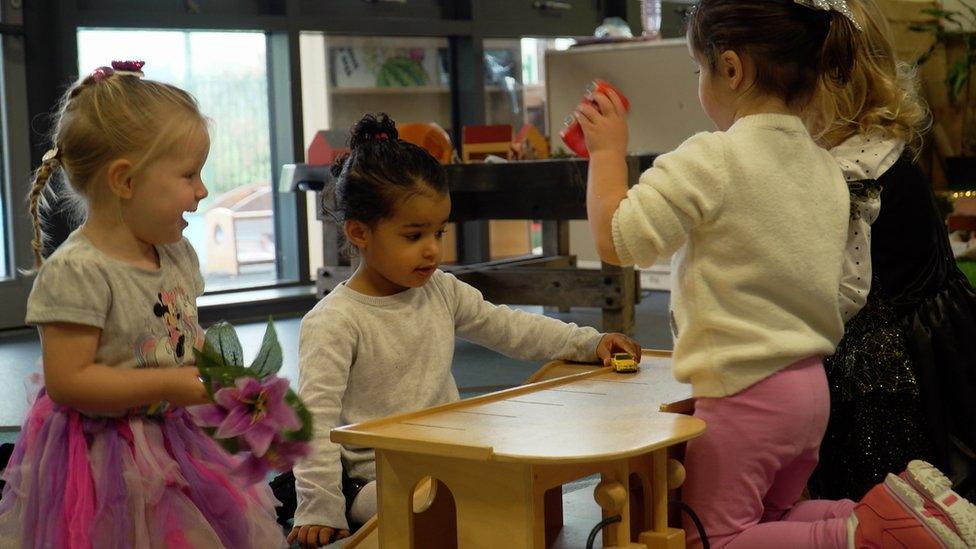
Two and three-year-olds learning and playing at Flying Start nursery in Lansbury Park
In 2014, when the Welsh Index of Multiple Deprivation was published, St James 3 - where part of the estate lies - was judged the most deprived for education, with the 2011 census finding less than half of adults had formal qualifications.
The area had high truancy rates and a high level of repeat absences from school, with 22% of pupils missing 15% or more of half-day school sessions. In the 2016-17 academic year this had fallen to 13%., external
But under the leadership of a new head teacher St James Primary School is turning things around and has been removed from the education inspectorate Estyn's monitoring list, external.
A council team has also set up a range of schemes to help the poorest pupils thrive.
These include summer swimming lessons to give confidence to children starting secondary school, a period poverty, nappy and school uniform bank, summer youth clubs, and sports clubs.

Life on the estate

'I had to prove to people I can go further'

Shaniah, 18, said some people automatically thought she was a bad person because she was from a council estate
When she was 15 Shaniah Adler was diagnosed with leukaemia.
Within days the community had raised over £9,000 to send her on a once-in-a-lifetime trip to Nevada, United States, to see her favourite band.
That was three years ago, and despite having to take a whole year off school for chemotherapy Shaniah got 12 GCSEs at grades A* to C.
Shaniah is now studying criminology at Birmingham University.

Shaniah said she was always playing out with her friends on the estate, and never once felt unsafe
She has faced prejudice and the presumption her friends and family are "scroungers" but she says her childhood on the park was wonderful.
"I tell people where I am from, and some say they wouldn't think that - but what do you think someone from a council estate should look like?", she says.
Shaniah wants to go on to do a masters and then a PhD studying life on council estates, in the hope she can help others.

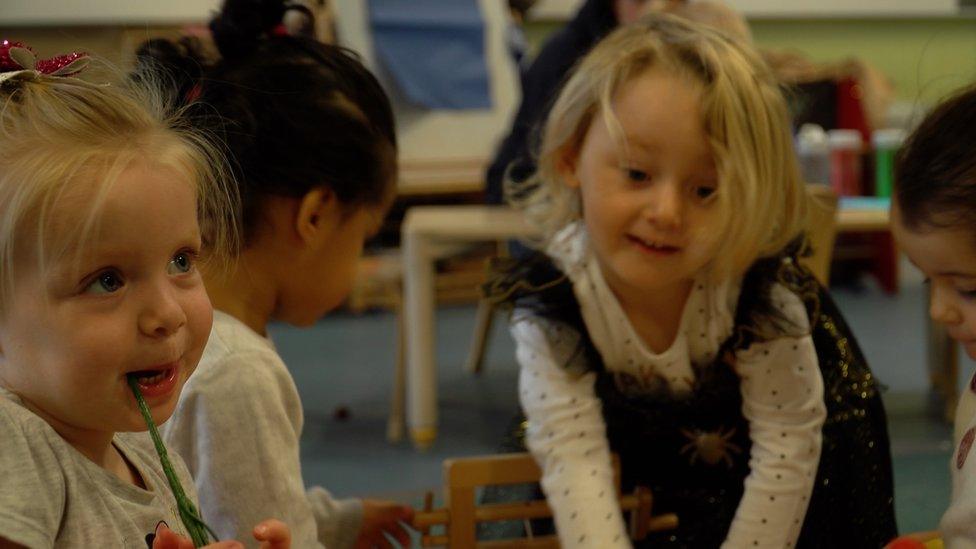
The two and three-year-olds enjoy playing and learning together
At the nursery some of the estate's youngest residents are making mud cakes and learning shapes.
The two and three-year-olds are playing with their friends and learning at the free part-time childcare session.
It is one of the services provided by the Flying Start team, who say they know every young child on the estate from birth, and provide help for parents including health visits and support for early language development.
As these children head off to school, it is hoped that after all the investment they may have more opportunities than the generations before.
This story is part of a special series from Lansbury Park. BBC News is exploring the challenges and the opportunities for those living and growing up on the estate.
- Attribution
- Published28 January 2016

- Published15 May 2019
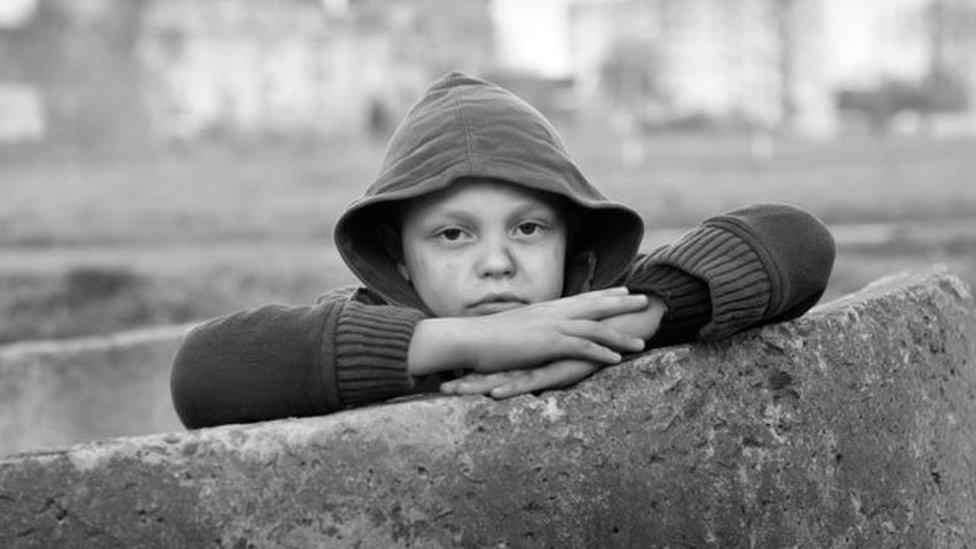
- Published4 October 2018
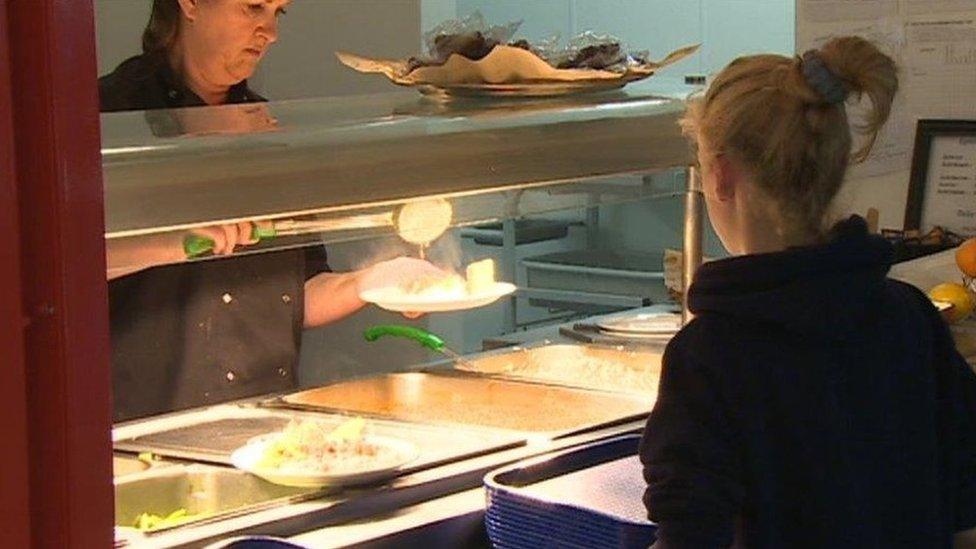
- Published8 November 2018
